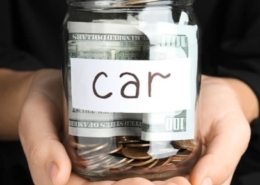How to Buy a New Car in a Competitive Market
Unlock the secrets to getting the best deal on a new car in today’s competitive market.
Guide to Buying a New Car in a Competitive Market
Buying a new car is both exciting and challenging. Knowing where to start can be complex, with many options, dealerships, and promotional offers. The sheer volume of choices might leave you feeling overwhelmed.
In a competitive market, deals vary widely, and timing is crucial; making the right decision involves careful research, thoughtful planning, and intelligent negotiation.
Key Takeaways
- Research and Compare: Use online tools to compare prices and models to ensure you get the best deal.
- Understand Financing Options: Decide between a loan or lease and shop for the best interest rates and terms.
- Negotiate Confidently: Know the market value and negotiate the total cost, not just monthly payments.
This article breaks down buying a car in a competitive market into manageable steps and tips. By following these guidelines, you can find a vehicle that meets your needs and budget and drive away feeling happy and sure of your choice.
Car Buying Tip: If you’re looking to buy a car in a competitive market, you may have noticed that finding a reasonable price can be challenging. Many buyers end up paying more than the suggested retail price. But don’t worry! You can still get a great deal on your new vehicle by requesting free car price quotes to compare dealer prices in your area.
Research is Your Best Friend
Before stepping into a dealership, arm yourself with knowledge. Knowing what you want and what to expect can save you time and money.
Understand Your Needs
Think about what you need from a car. Do you need a family vehicle with plenty of space? Or are you looking to buy a sports car? Consider your lifestyle and how the vehicle will fit into it.
Consider factors like the number of passengers you typically carry, your driving (city, highway, or off-road), and any specific features you require, such as a large cargo area, all-wheel drive, or advanced safety features. Understanding your needs will help you narrow your choices and focus on the models that best meet your requirements.
Set a Budget
Establish a realistic budget. Factor in the purchase price and ongoing costs like insurance, fuel, and maintenance. Stick to this budget to avoid financial stress down the line.
When setting your budget, consider how much you can afford for the down and monthly payments. Use online calculators to estimate the total cost of ownership, including taxes, registration fees, and any additional costs associated with owning and maintaining the vehicle.
- How to Buy a New Car Below Factory Invoice Price – True dealer cost and the factory invoice price are not the same… dealer cost can be much lower.
- Figure a Fair Profit New Car Offer – How to calculate a fair profit new car offer.
- How to Buy a New Car Online – Not sure where to start? Use my step-by-step guide on how to buy a new car online.
Explore Different Models
Once you know what you need, research various models that fit your criteria. Look at reviews, safety ratings, and reliability scores. Websites like RydeShopper and Edmunds can provide valuable insights.
Check for reviews from other owners and professional reviewers. Pay attention to common praises and complaints about the models you’re interested in. Look for vehicles with a good track record for reliability and low maintenance costs. Safety ratings from organizations like the National Highway Traffic Safety Administration (NHTSA) and the Insurance Institute for Highway Safety (IIHS) are also essential considerations.
Compare Prices
Compare prices from multiple dealerships and online platforms. This will give you a good idea of the market rate and help you spot a good deal when you see one.
Use resources like Edmunds to understand the fair market value for the models you’re considering. This will help you determine if the prices you see are reasonable or if you should negotiate for a better deal.
Keep an eye out for promotions and incentives that can further reduce the cost of the vehicle.
Use Online Car Buying Tools
In today’s digital age, you have many online car-buying tools at your disposal to make the buying process more accessible and more transparent.
Rydeshopper
Rydeshopper is an excellent tool for comparing price quotes from multiple dealerships in your area. By entering the car’s make, model, and year you’re interested in, you can quickly understand what different dealers offer. This comparison helps you identify the best deals without visiting each dealership.
Edmunds
Edmunds is a well-known resource for car buyers. In addition to providing expert reviews and detailed information about different models, Edmunds allows you to compare prices from local dealers. You can also find out what incentives and rebates are available, making it easier to negotiate a better deal.
CarsDirect
CarsDirect offers a straightforward way to get price quotes from local dealers. You can search for new cars by make, model, and location and receive quotes directly from dealerships. This service can save you time and help you get a clearer picture of the competitive landscape.
Manufacturer Websites
Remember to check the official websites of car manufacturers. They often have tools for finding local inventory, viewing special offers, and even starting the purchase process online. Manufacturer websites can also provide up-to-date information on the latest models and features.
These online tools can give you a significant advantage in car buying. By comparing prices and offers from multiple sources, you can ensure that you’re getting the best possible deal.
Financing Options
Understanding your financing options can significantly impact the total cost of your new car.
Loan or Lease?
Decide whether to take out a loan or lease the car. Loans mean you eventually own the vehicle, while leases often have lower monthly payments but come with restrictions and end-of-term costs.
Consider the pros and cons of each option. With a loan, you’ll own the car outright once it’s paid off, which can be an excellent long-term investment. On the other hand, leasing may allow you to drive a more expensive car for less money, but you’ll have to return the vehicle at the end of the lease term unless you choose to buy it.
Shop for the Best Rates
Don’t settle for the first financing offer. Shop around for the best interest rates and terms. Consider getting pre-approved for a loan to strengthen your negotiating position.
Compare offers from banks, credit unions, and online lenders. Pre-approval can give you a clear idea of how much you can afford and can streamline the buying process. It also shows dealers that you’re a serious buyer, which can help during negotiations.
Understand the Terms
Read all the fine print. Ensure you understand the terms, including any penalties for early repayment or hidden fees.
Look out for details like the length of the loan, the interest rate, and any additional fees. Understanding these terms can help you avoid surprises and get a fair deal. Be cautious of offers that seem too good to be true, as they may come with hidden costs.
Real-Time Bargain Hunting: Turn to Edmunds for instant access to the latest and greatest local deals, saving you time, money, and stress.
Visit Multiple Dealerships
Don’t just visit one dealership. Shopping around can help you find the best deals and give you a sense of the market.
Test Drive
Never skip the test drive. It’s your chance to see how the car handles and ensure it feels right. Pay attention to the comfort, noise levels, and visibility.
Test driving multiple vehicles allows you to compare them directly. Take your time to assess how each car performs in different driving conditions. Pay attention to the controls’ ease of use, the seats’ comfort, and the overall driving experience.
Ask Questions
Ask about everything from the car’s features to the warranty. A good salesperson will be happy to provide all the information you need.
Prepare a list of questions before you visit the dealership. Inquire about the car’s features, fuel efficiency, safety ratings, and additional costs. Understanding these details can help you make an informed decision.
Be Ready to Walk Away
Don’t be afraid to walk away if the deal isn’t right. There are plenty of cars and deals out there. Your willingness to leave can sometimes prompt the dealer to offer a better price.
Walking away shows the dealer you’re serious about getting the best deal. They may be more inclined to negotiate if they know you can shop elsewhere. Remember, there’s no rush; take your time to find the right car at the right price.
Negotiating the Best Deal
Negotiation can be intimidating, but it’s crucial to car buying.
Know the Market Value
Armed with your research, you’ll know what the car is worth. Use this information to negotiate a fair price.
A clear idea of the car’s market value gives you a solid foundation for negotiation. Use this information to make a reasonable initial offer, and be prepared to justify your offer with facts and data.
Start Low
Start with a low offer. This gives you room to negotiate without exceeding your budget.
Starting with a low offer can set the tone for the negotiation. It gives you space to compromise without going over your budget. Remember, the goal is to reach a mutually agreeable price.
Be Polite and Firm
Politeness goes a long way. Be firm but respectful in your negotiations. This approach often yields better results than being aggressive.
Negotiating calmly and respectfully can create a positive atmosphere. Dealers are more likely to work with you if they feel respected. Stay firm on your budget and requirements, but be open to reasonable compromises.
Consider the Total Cost
Negotiate the total cost, not just the monthly payments. Dealers can make a deal look attractive with low monthly payments, but you might pay more in the long run.
Focus on the total cost of the vehicle, including any fees and additional costs. Low monthly payments can be deceiving if they come with an extended loan term or high interest rates. Make sure the overall deal fits within your budget.
The Paperwork
The final step is the paperwork. It’s essential to understand what you’re signing.
Review All Documents
Read all documents carefully before signing. Ensure that the terms match what was agreed upon during negotiations.
Take your time to review all the paperwork thoroughly. Make sure everything is in order and that there are no discrepancies. Don’t hesitate to ask for clarification if something doesn’t look right.
Check for Additional Fees
Beware of additional dealer fees. Ask for a breakdown of all costs and clarify any charges you don’t understand.
Unexpected fees can add up quickly. Ask for a detailed breakdown of all costs and ensure no hidden charges. If you’re unsure about fees, ask the dealer to explain them to you.
Dealer Add-Ons
Dealerships often offer various add-ons, such as extended warranties, paint protection, and interior treatments. While some add-ons can be beneficial, they are usually marked up significantly.
Evaluate each dealer add-on carefully to determine if you genuinely need it or can get it at a better price elsewhere. Don’t feel pressured to accept these extras; you can always decline them and add them later if you change your mind.
Take Your Time
Don’t rush this process. Take your time to review everything thoroughly. This is a significant purchase, and you want to know every detail.
Finalizing the paperwork is essential, so don’t feel pressured to rush through it. Make sure you understand all the terms and conditions before signing. This attention to detail can save you from potential issues later on.
Finalizing the Purchase
Once the paperwork is complete, it’s time to finalize the purchase and enjoy your new car.
Insurance
Get insurance sorted before driving off the lot. Compare quotes from different providers to get the best rate.
Shop around for insurance to find the best coverage at the most affordable rate. Consider factors like deductibles, coverage limits, and any additional benefits. Having insurance before you drive away ensures you’re protected from day one.
Inspection
Do a final inspection of the car. Ensure everything is in order and that there are no unexpected issues.
Before taking delivery of the car, do a thorough inspection. Check for any signs of damage, ensure all features are working correctly, and verify that all promised accessories and extras are included. If you find any issues, address them with the dealer immediately.
Celebrate!
Congratulations! You’ve successfully navigated the competitive market and bought a new car. Now, it’s time to enjoy your new ride.
Buying a new car is a significant achievement. Take a moment to celebrate your success and enjoy the excitement of driving your new vehicle. Share the news with friends and family, and take your new car for a celebratory drive.
FAQs
How do I determine the best time to buy a car?
Timing can significantly impact your car deal. Typically, the end of the month, quarter, or year is a good time because dealers are trying to meet sales targets. Also, shopping during the off-season (when fewer people buy cars) can yield better deals.
Should I buy new or used?
Buying new means you get the latest features and a full warranty, but it comes at a higher cost. Used cars can be more affordable and offer great value, especially certified pre-owned vehicles with warranties.
What should I bring to the dealership?
Bring your driver’s license, proof of insurance, a form of payment for the down payment, and any pre-approval documents if you’re financing through a third party.
Can I negotiate the interest rate on a car loan?
Yes, you can negotiate the interest rate. It helps to have a good credit score and pre-approval from another lender as leverage.
What if I’m upside down on my current car loan?
If you owe more on your current car than it’s worth, you must pay the difference or roll it into your new loan. Be cautious with the latter option, as it can increase your monthly payments and overall debt.
Is it better to get financing through a dealer or a bank?
It depends. Dealer financing can be convenient and sometimes offer special promotions, but bank loans might provide better interest rates. Compare both options to see which is more advantageous.
Conclusion: Buying A New Car in a Competitive Market
Buying a new car in a competitive market can be complex, but with the proper preparation and approach, you can secure a great deal. The first step is to conduct thorough research to understand the market, the available models, and the prices offered.
Understanding your financing options is equally essential, as it can significantly affect the overall cost of your new car. Visit multiple dealerships to compare offers and gather information.
Confidence in negotiation is crucial; armed with your research, you’ll be better prepared to discuss terms and prices. By following these steps—researching, exploring financing, visiting dealerships, and negotiating—you’ll be well-equipped to drive away in the perfect car for you, having made a well-informed and satisfying purchase.
















